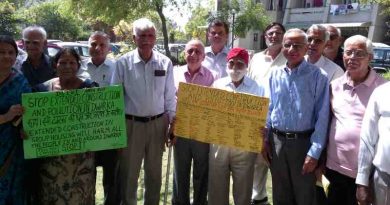Which Is Europe’s Most Polluted Capital City?

Skopje, a city of more than half a million people, located in the centre of the Balkan peninsula in southern Europe has been listed by the World Health Organization (WHO) amongst the cities in Europe with the highest concentration of harmful fine particulate matter (PM) 2.5 in the air.
Particulate matter 2.5 includes a variety of components such as nitrates, sulphates, organic chemicals, metals, dust and black carbon, which pose a risk to human health. Due to their small size, they penetrate the lungs and are known to cause heart, lung and other diseases.
The latest data released by WHO in 2018 shows a PM 2.5 annual mean level of 40 micrograms per cubic metre in Skopje—four times the recommended levels of 10µg/m³.
In terms of mean concentrations of both PM 10 and PM 2.5, the WHO Ambient Pollution Database for 2018 ranks Skopje as Europe’s most polluted capital city. Skopje is the capital of the Republic of Macedonia.
Moreover, Skopje suffers spikes in air pollution. To take one day as an example, on 13 November 2018, the European Environment Agency rated the Skopje municipality of Karpos as having “very poor” air quality. It registered 104.6µg/m3 of PM 2.5 – more than 10 times the levels recommended by WHO.
WHO estimates that 2,574 people die prematurely in the country annually because of air pollution.
The city’s pollution has been blamed on a mix of coal burning, fuel oil and wood burning stoves in households, open waste burning, emissions from aging industry and old, highly-polluting vehicles.
In particular, the city has been reliant on lignite coal for heat during winters – a leftover from the Yugoslav era. Many Skopje residents cannot afford to move to cleaner, more sustainable forms of heating and thus rely on cheaper, more polluting ones, such as wood.
The geography of Skopje, surrounded by mountains, means that the polluted air is effectively trapped. Skopje is particularly affected by pollution in the winter season which has contributed several times to the closure of the city’s airport.
“You can feel a sour, metallic taste in your mouth when the air pollution levels get high,” says Hristijan Gjorgievski, a Skopje office worker.
Courtesy: UN Environment






